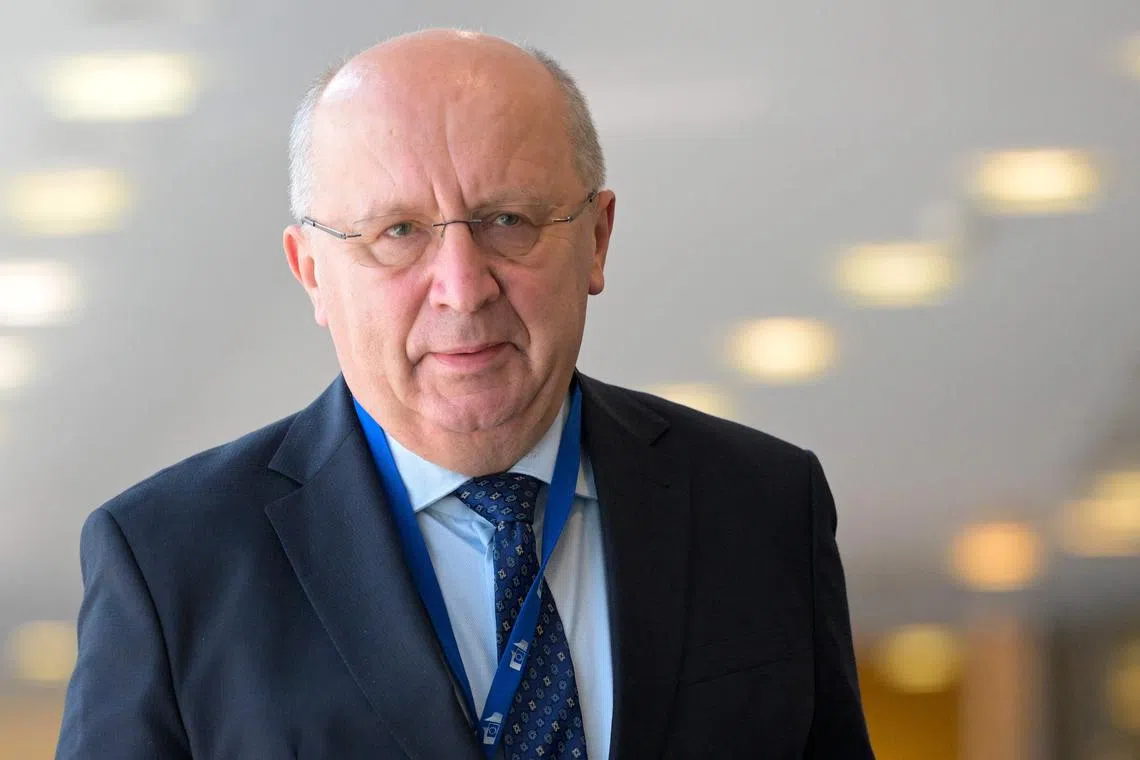Europe must prepare to meet Russia militarily in 6 to 8 years: New EU defence chief
Sign up now: Get ST's newsletters delivered to your inbox

Mr Andrius Kubilius, the nominee to be the EU's first defence commissioner, has been tapped to boost the continent's arms industry.
PHOTO: AFP
Follow topic:
VILNIUS - The European Union must be quick to increase its defences as Russia may be ready for a confrontation in six to eight years, the nominee to be the EU’s first defence commissioner told Reuters in an interview.
Mr Andrius Kubilius, a former prime minister of Lithuania – one of Russia’s neighbours – has been tapped to boost the continent’s arms industry,
The new post reflects how security has risen to the top of the EU’s political agenda since Russia’s 2022 invasion of Ukraine.
“Defence ministers and Nato generals agree that Vladimir Putin could be ready for confrontation with Nato and the EU in six to eight years,” Mr Kubilius, a fierce critic of Russia and supporter of Ukraine, said on Sept 18.
“If we take these assessments seriously, then that is the time for us to properly prepare, and it is a short one. This means we have to take quick decisions, and ambitious decisions,” he said.
Mr Kubilius said his first job as commissioner would be to explore, jointly with EU top diplomat nominee Kaja Kallas, what resources the EU needs to be ready for a military challenge.
He is aiming to complete an exploratory study within the first 100 days.
He said underinvestment of more than €1 trillion (S$1.4 trillion) in the decade since the financial crisis meant the European defence industry was in an “unsatisfactory condition”.
Spending, not sourcing
Mr Kubilius faces an uphill battle against several EU governments which are deeply wary of giving Brussels a say in how they organise their defence industries.
The European Commission has no legal mandate to formulate defence policies, and EU countries coordinate their defence through Nato.
Mr Kubilius sees his job as complementary to Nato, not in competition.
“The European Union won’t have defence plans or military leadership, like Nato does – but the European Union has instruments to get larger financing, which Nato doesn’t,” he said.
He “would be glad” to be able to invest more than €500 billion over the next few years to boost Europe’s defence industries.
But he is less certain about where to get the money.
“It’s not for me to know... A defence commissioner has to know where to spend the money, not how to source it.
“That is up to the other commission members,” he said.
Issuing joint defence bonds, using funds from the European post-pandemic Recovery and Resilience Facility, or tapping the European Investment Bank were options to fund defence industry expansion, Mr Kubilius suggested. REUTERS

